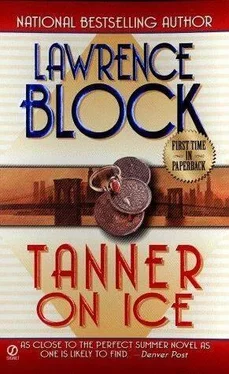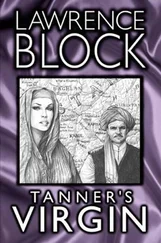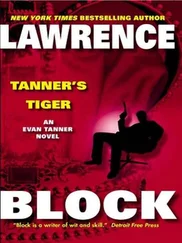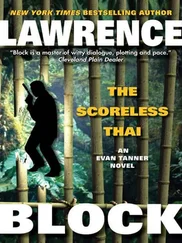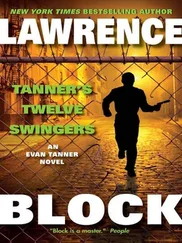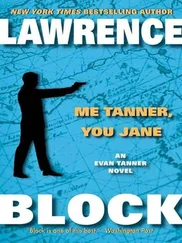“It’s a Mac,” she said.
“A Mac?”
“Yes, a Macintosh.”
“A Macintosh. Isn’t that a kind of apple?”
“Yes, it’s an Apple Macintosh.”
“Don’t you mean to say it the other way around? A Macintosh apple.”
“Apple is the company,” she said, pointing to the corporate logo on the metal box that supported the TV set. “And Macintosh is the name of the product line. And this particular model is a Power Mac 6600.” And she went on to tell me a lot about it in a string of sentences that made no sense at all to me, using words like “modem” and “megahertz” and “hard drive” and “gigabyte.” That last got mixed up in my mind with the trilobite, the not uncommon fossil of a triform prehistoric creature, and I was trying to work that out when she said, “Evan, you don’t know anything about computers, do you? I guess they didn’t have them when you got frozen.”
“Companies had them,” I seemed to remember, “and there were these punch cards that you weren’t supposed to fold, mutilate, or spindle.”
“This is a personal computer,” she said. “And it doesn’t use punch cards. It uses software, but you just install it and forget about it. Unless it’s Windows 95, in which case you have problems with it.”
“Oh.”
“And you don’t know what I’m talking about, do you?”
“No,” I said, “but it’s just another language, and I have a good head for languages. What do you do with this thing, Minna?”
“Anything you want.”
I gave her a look.
“I’m sorry, Evan. It’s just that everybody takes computers for granted, and of course there’s no way for you to know what they are. You can do almost anything with them. You can create a document, you can maintain a database-”
“Create a document,” I said. “You mean like forging a passport?”
But that wasn’t what she meant. She explained, and I found the explanation reassuring. “In other words,” I said, “you do what you used to do on a typewriter, except you can edit it before you print it out. But it’s basically the same thing. So what’s involved really is a matter of learning a new language. It’s like the difference between driving an automobile and flying an airplane. You really do need a new vocabulary, but what you’re doing isn’t all that different.”
“I guess so.”
“And the other thing you said? A database?”
“I suppose you could say it’s not much more than a glorified card file.”
“See? Language. Vocabulary. What else can you do with this thing?”
Then she started talking about E-mail and the Internet and the World Wide Web, and it wasn’t just a new language, it was a whole new world. I realized this, and I guess it showed in my face, because she stopped herself in the middle of an incomprehensible sentence and reached to take my hand.
“Evan,” she said gently, “I think you’ve got a lot of catching up to do.”
It took mesix months.
I don’t know if you’d call that a long or a short time for the task at hand. All I know is that’s how long it took, and it was an intensive six months. I was at it twenty-four hours a day, seven days a week, with time out for meals and not much else. Even the exercise I got, which consisted of walks around the city, was a sort of busman’s holiday; I tried to take a different route each time and acquaint myself with changes in the neighborhoods.
Mostly I read. Every week I went through a solid year of newsmagazines – Time or Newsweek, I alternated between them, plus the “Week in Review” section of the Sunday Times. I maintained that approximate ration – one week to one year – and supplemented the news with the books and magazine articles my reading led me to.
For example, the news coverage could give me a sense of the increasing role of computers, but I had to read books to find out what they really amounted to. The newsmagazines provided a good idea of the way the AIDS plague had impacted on America and the rest of the world, but I had to read And the Band Played On for a fuller report and an overview. And so on.
I just read all the time. And, while I was taking the years one by one in the same order Time had dealt them out, there was no way to avoid skipping around some. The daily paper kept throwing things at me that I hadn’t yet encountered in my reading, and I couldn’t really pretend I didn’t notice.
Like, for example, the dissolution of the Soviet Union and the collapse of world communism. How, when you come face to face with a fact of such magnitude, could you put off paying attention to it? A system that had looked for all the world like the inescapable future for all the world had overnight wound up on the dust heap of history, along with Prohibition and feudalism and the Stanley Steamer. The Red Chinese (except no one called them that) had a stock market now, and the Brits had given Hong Kong back to them. The only place communism survived at all, as far as I could make out, was in Cuba, which in turn was the only place where the United States had strenuously opposed it. (There was a lesson there of a sort which probably wouldn’t be lost on a master of the Asian martial arts, but I wasn’t sure exactly what it was.)
For my part, I went right on reading. Years ago (obviously!) I’d taken a course in speed-reading. I hadn’t used it all that often – sometimes you want to take your time with a book – but I hadn’t forgotten the technique, and I made good use of it now.
Meanwhile, Minna taught me how to use the computer. At first we spent an hour a day at it, and early on I was convinced that I was hopeless, that I would never catch on, that merely learning what to call things was hard enough but actually using the thing was impossible. I reminded myself that some languages were like that – I’d had a perfect hell of a time learning Chinese – and that all I had to do was stay with it. And then I began to get the hang of it.
Once that clicked in, Minna had me using the thing to study the past quarter-century. It was amazing the access it gave a person. I could sift through the world’s libraries without leaving my apartment. I could also go off on tangents without realizing it, too, and could waste whole hours playing Tetris and computer solitaire, but eventually they lost their curious charm and I managed to get back to work.
So much to find out! So much to catch up on!
A lot of it was exciting. It had been evident even back in the early seventies that Europe was in the process of becoming one nation, and that process had continued, but so had its opposite. Yugoslavia was a prime example, having during those same years become five nations, but it was by no means an isolated example. The bad old USSR had become more than a dozen nations, and even Czechoslovakia had somehow found it incumbent upon itself to bifurcate into Slovakia and the Czech Republic. Four short years before my personal Ice Age began, Russian tanks had rolled through the streets of Prague. Now Vaclav Havel, whom I’d met once in a garret in Montparnasse, was president of the country. I remembered him as a chain-smoking young playwright, a gentle idealistic dreamer, and now the son of a gun was a head of state.
Quebec, where I’d spiked a plot against the life of the queen of England, had moved far closer to secession from the rest of Canada. Basque separatism flourished, and so, it now appeared, did separatist movements in Galicia and Cantalonia. There were strong pushes for autonomy for the Flemings in Belgium, and both Scottish and Welsh nationalism had heated up some, although the Cornish separatists seemed disappointingly docile.
On the other hand, some things hadn’t changed a bit. The United States, doing no end of business with such traditional allies as Hanoi and Bejing, continued its blockade of Castro’s Cuba. In Northern Ireland, Catholics and Protestants kept up their reprise of the Thirty Years’ War, their version of which was outrunning the original.
Читать дальше
